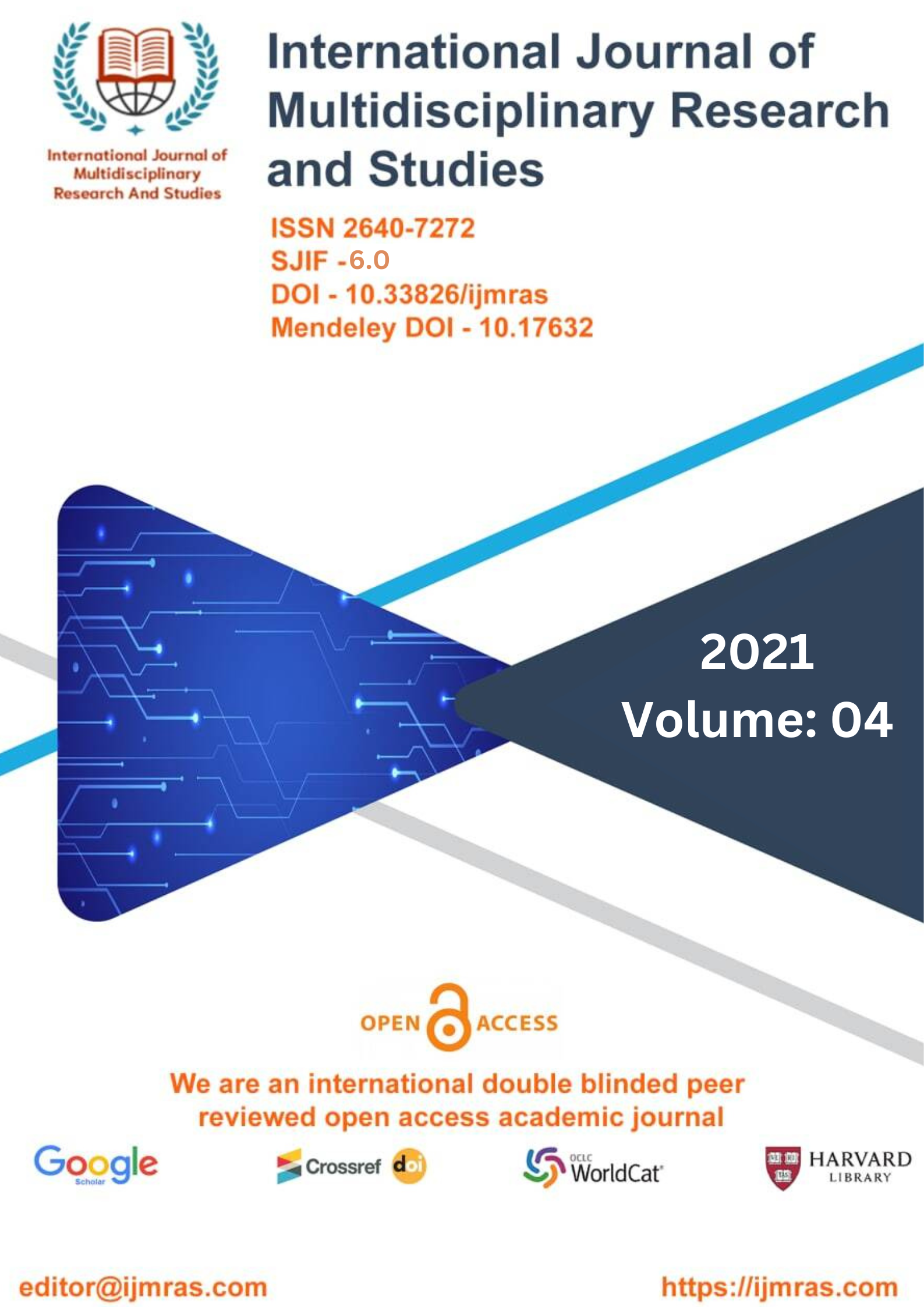STUDY ON THE NOVELS OF JHAMPALAHIRI AND CHITRA BANERJEE DIVAKARUNI

Abstract
The term "diaspora" refers to a group of dispersed individuals who share a cultural background but live in different parts of the world. It also refers to people of a certain ethnic group who have voluntarily or because of outside influences departed the country in which they were born. In contrast to the influential migration, which refers to the forcible banishment of people from their native land arising due to social, political, or economic reasons such as the indentured labor system or the partition of India and Pakistan, the intentional migration from a native land to an alien land includes migration for the purpose of education, employment opportunities, marriage, and other social reasons. Immigrants face a variety of challenges when they move to a country that is part of a diaspora, including a sense of dislocation, cultural friction, and identity ambiguity. Diaspora literature, also known as diasporic literature, is a literary genre that was established when immigrant authors began writing about the experiences of those living in diaspora. Indian Diasporic Literature has developed as a result of the creative contributions made by authors of Indian descent such as Bharati Mukharjee, Kiran Desai, Amitav Ghosh, V. S. Naipul, Salman Rushdie, Meena Alexander, Jhumpa Lahiri, and Chitra Banerjee Divakaruni, amongst others. This research will specifically focus on the topic of diaspora and will attempt to apply characteristics of diaspora to several works of fiction written by Jhumpa Lahiri and Chitra Banerjee Divakaruni.
Keywords
Writers,, Indian, Literature, FrictionHow to Cite
References
Aasha, N. P., and Reena Andrews. “Cultural Reflections and Identity Crisis in Jhumpa Lahiri‟s The Lowland.” International Journal of Management, Science and Technology, vol. 8, issue 5, pp. 316-320. IRJMST, www.irjmst.com/abstractview/6688 .
Gouse, Sabirunnisa. “Diasporic Dimension and Identity Issues in Jhumpa Lahiri‟s The Namesake.” Indian Scholar, An International Multidisciplinary Research eJournal, vol. 3, issue 4, 2017, pp. 326-333. Indian Scholar, www.indianscholar.co.in/downloads/44-md.-sabirunnisa-gouse.pdf
. Kapur, Manju. The Immigrant. Random House India, 2011. Google Books, books.google.co.in/books?id=lb1NQVv2HZQC&source=gbs_
navlinks_s. Lahiri, Jhumpa. Interview by Tina Srebotnjak Bader. Isabel Bader Theatre, September 29, 2013, www.youtube.com/watch?v=dFNEY7TNMq0. Accessed 29 November 2018 --- The Namesake. Harper Collins Publishers, 2003. ---
The Lowland. Random House India, 2013. Merritt, Stephanie. “The Lowland by Jhumpa Lahiri – review” The Guardian. 2013. www.theguardian.com/books/2013/sep/07/jhumpa-lahiri-the-lowland-review. Accessed 5 March 2019.
Mukherjee, Shubha. A Home Away from Home: A Study of the Fictions of Bharati Mukherjee, Chitra Banerjee Divakaruni and Jhumpa Lahiri.
Lulu Publication, 2018. Google Books, books.google.co.in/books?id=V6V2DwAAQBAJ&source=gbs_navlinks_s. Said, Edward. Reflections on Exile, Granta Publications, 2001.
Divakaruni, Chitra Banerjee. The Mistress of Spices. New York: Anchor Books, 1998. 2. Mukherjee, Bharati. Jasmine. Grove Weidenfeld, 1989. 3
Lahiri, Jhumpa. The Namesake. London: HarperCollins Publishers, 2003, Report. 2014. Lahiri, Jhumpa, The Namesake. New Delhi: Harper Collins, 2004. Print.
The Namesake. Britain: Flamingo, 2003. Lahiri, Jhumpa Unaccustomed Earth Alfred A. Knopf, Toronto, 2008. Imaginary Homelands: Essays and Criticism 1981-1991
Granta Books, London, 1991. Diaspora: Concepts, Intersections, Identities Rawat Publications, Jaipur, 2011. Divakaruni, Chitra Banerjee. Sister of My Heart.
"Chitra Banerjee Divakaruni". Encyclopedia.com. Retrieved 25 December 2022.
Davis, Rocío G. (2003). "Chitra Banerjee Divakaruni (1956– )". In Huang, Guiyou (ed.). Asian American Short Story Writers: An A-to-Z Guide. Westport, CT: Greenwood Press. p. 65. ISBN 978-0-313-32229-7.
Bredemus, James Thomas (4 April 1999). "Voices from the Gaps: Chitra Banerjee Divakaruni" (PDF). conservancy.umn.edu. hdl:11299/166154. Retrieved 7 February 2020.
ChitralekhaDivakaruni (December 1984). For danger is in words : changing attitudes to language in the plays of Christopher Marlowe. OskiCat - UC Berkeley Library Catalog (Thesis). Retrieved 23 February 2019.
"Department of English Creative Writing Program Professor Honored Among Houston's Finest Authors". University of Houston – College of Liberal Arts and Social Sciences – uh.edu. 1 October 2019. Retrieved 7 February 2020.
Seshachari, Neila C. (Winter 2001). "Writing As Spiritual Experience: A Conversation with Chitra Banerjee Divakaruni". Weber Journal Archive. Retrieved 8 June 2019.
Agarwal, Dr. Gunjan and Gunjan Kapil (December 2014). "The Representation of Woman in Chitra Banerjee Divakaruni's Doors, Affair, and Meeting Mrinal" (PDF). The Criterion. 5 (6): 77.
License
Copyright (c) 2021 ARUNDHATEE

This work is licensed under a Creative Commons Attribution 4.0 International License.
Individual articles are published Open Access under the Creative Commons Licence: CC-BY 4.0.




